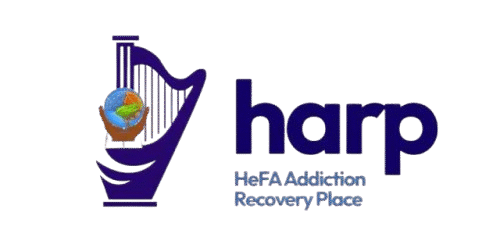Transforming Lives Through Agriculture
HARP Farms represents a groundbreaking approach to addiction recovery, combining Christian-based rehabilitation with sustainable agricultural practices. Our holistic program addresses the root causes of substance use disorders while providing practical life skills, therapeutic benefits, and economic opportunities for lasting recovery.
Our Mission & Objectives
🌱 Therapeutic Agriculture
Engage residents in structured, therapeutic farming routines that promote mental health and personal growth
🎓 Vocational Training
Provide comprehensive training in crop cultivation, animal husbandry, and agribusiness management
🍎 Food Security
Reduce food costs and ensure nutritional support for all residents through sustainable farming practices
💰 Economic Sustainability
Create sustainable income streams through the sale of surplus produce and value-added products
🤝 Community Reintegration
Strengthen reintegration efforts through skill development and meaningful community engagement
Project Components
Crop Farming
Comprehensive agricultural program including:
- Rain-fed and irrigated vegetables (tomatoes, okra, pepper, cabbage)
- Root and tuber crops (cassava, yam, sweet potatoes)
- Staple crops (maize, plantain, groundnut)
- Medicinal herbs (moringa, lemongrass, mint, aloe vera)
Animal Husbandry
Diverse livestock program featuring:
- Poultry farming (500 birds capacity - layers and broilers)
- Rabbit breeding units for fast reproductive cycles
- Goat and sheep breeding (20 breeding stock)
- Sustainable livestock management practices
Aquaculture (Phase II)
Sustainable fish farming initiative:
- Construction of 2 earthen ponds (10x10m each)
- Tilapia and catfish cultivation
- Integrated aquaculture-agriculture systems
- Value chain development and marketing
Infrastructure & Equipment
Modern farming infrastructure:
- Borehole and drip irrigation systems
- Animal housing (coops, hutches, storage sheds)
- Solar-powered lighting and equipment
- Processing and storage facilities
Implementation Timeline
Phase I (0-3 months)
Foundation establishment including land acquisition and clearing, basic crop farming setup, poultry coop and small livestock pens construction, and initial training and orientation programs for residents.
Phase II (4-9 months)
Program expansion with fish farming development, advanced horticulture including irrigated and greenhouse crops, composting and sustainability programs, and enhanced resident training modules.
Phase III (10-18 months)
Market integration through comprehensive marketing strategy for farm produce, farmer-cooperative development, skill certification programs, and complete reintegration programming for graduates.
Project Investment
| Investment Category | Amount (GHS) | Description |
|---|---|---|
| Land preparation and fencing | 20,000 | Site preparation and security infrastructure |
| Farm tools and seeds | 10,000 | Essential farming equipment and quality seeds |
| Poultry setup | 25,000 | Coops, chicks, feed, and equipment |
| Livestock housing | 15,000 | Goat, sheep, and rabbit pens |
| Irrigation and water systems | 30,000 | Borehole, pumps, and irrigation infrastructure |
| Staffing and training | 20,000 | Personnel costs and capacity building |
| Fish ponds construction | 10,000 | Earthen pond construction and equipment |
| Contingencies | 10,000 | Emergency fund and miscellaneous expenses |
| TOTAL PROJECT INVESTMENT | 140,000 | Complete implementation cost |
Impact & Beneficiaries
Direct Beneficiaries
20-30 current and former HARP residents annually will receive comprehensive agricultural training, therapeutic farming experiences, and sustainable livelihood opportunities.
Staff Development
HARP staff will undergo specialized agribusiness training, ensuring sustainable program management and continuous skill development within the organization.
Community Impact
Local community members will benefit through outreach programs, employment opportunities, and access to fresh, affordable produce from the farm operations.
